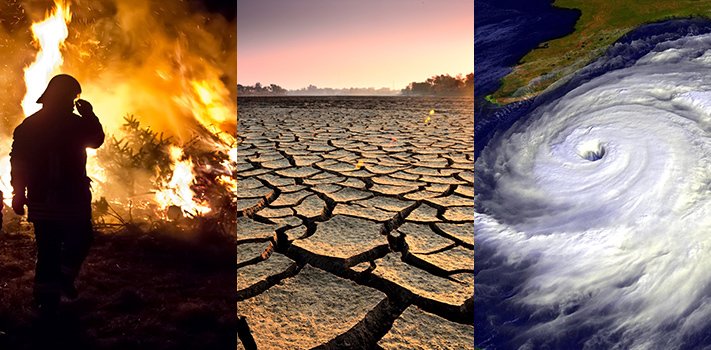Can Climate Change Contribute to IAQ Problems?
Climate change can be an unsettling topic to discuss for some. Many tend to think of the consequences of rising temperatures and the increasing severity of weather patterns. One topic that is not usually discussed is how climate change will impact Indoor Air Quality, the focus of today’s blog.
Climate Change Projections
According to NASA, climate change predictions over the century include: temperature rising 2.5 to 10 degrees Fahrenheit, lengthening of the growing season and periods of no frost, increases in drought and heat waves along with precipitation changes and increases in sea levels from 1 to 8 feet by the year 2100. This is just scratches the surface of well-known changes but, how will these changes influence indoor air quality?

Climate Change on Mold and Airborne Allergens
According to the EPA’s statement on the effect of climate change on indoor air quality, increasing carbon dioxide, precipitation changes, and the increasing severity of weather may impact mold and allergen concentrations. Increasing severe weather conditions can lead to higher cases of indoor dampness which in turn can lead to higher indoor air concentrations of mold, allergens, and bacteria. A study published in the Journal of Allergy and Clinical Immunology predicted there will be a rise of asthma incidents due to these climate factors affecting allergens.
Climate Change on Particulates
Rising temperatures and lack of precipitation in some areas of the country is expected increase wildfires. Wildfires create fine particulate matter that can make their way indoors leaving unhealthy conditions. These particles are smaller than common dust and debris not easily removed by standard furnace filters.
Climate Change’s Impact on Carbon Monoxide
Severe weather can also increase our exposure to carbon monoxide. Severe storms can lead to power outages in properties. The EPA states that the improper usage of backup generators that run on fossil fuels can lead to the unintentional exposure to carbon monoxide and possibly lead to poisoning or death. Annually, hundreds die from portable generators and thousands more are injured.
Conclusions
Climate change will cause drastic changes not only to our outdoor environments but also the indoor spaces that we live and work in. If you find yourself in a situation impacted by climate change (wildfires, moisture intrusion or suspect IAQ contamination), contact Indoor Science to discuss your options to investigate your concerns and provide peace of mind.
 877-872-4339
877-872-4339  Contact Us
Contact Us 






